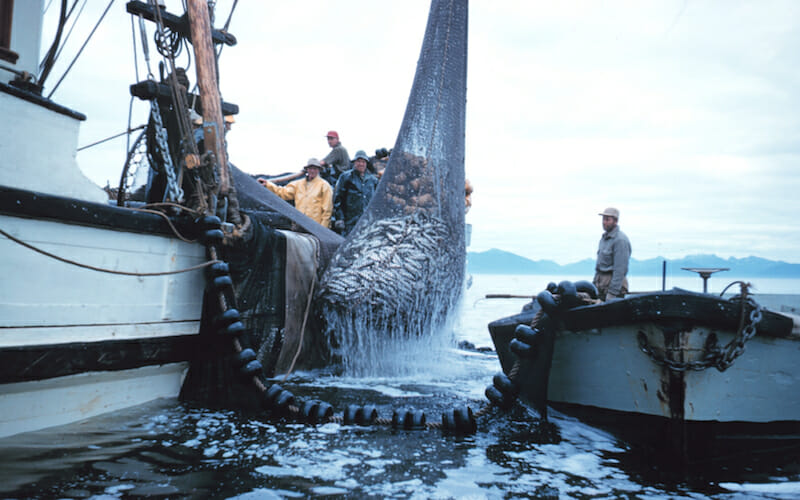
Foreign Aid Focused on Long-term Sustainability is a Win-Win
In a political climate focused on scaling back U.S. commitments abroad in order to focus on the United States internally, foreign aid has become a particularly contentious issue. Lost in this debate, however, is the unique benefits the United States derives from the small subset of foreign assistance—a fraction of the 1% of the federal budget that goes to foreign assistance generally—that is directed toward international conservation efforts. There are obvious benefits of conservation assistance to countries that face challenges such as tropical deforestation. Less known is how this assistance directly benefits industries and businesses in the United States.
The lumber industry, which employs more than 950,000 people, is one of the largest manufacturing employers in the United States. Shipments from this industry account for $282 billion dollars annually. The United States is one of the largest importers of tropical wood in the world.
Deforestation is a particular concern to the U.S. lumber industry because a great deal of this phenomenon can be attributed to illegal logging. Illegal logging on average reduces the world timber prices between seven and sixteen percent. Around $460 million dollars are lost by American businesses according to a study done by the American Forest and Paper Association. Globally, the timber industry loses close to $10 billion annually. Combating illegal logging, but also the unsustainable unregulated logging, not only benefits and protects the U.S lumber industry in the short-term but ensures that it continues to be one of the strongest American industries both domestically and globally.
Shifting the conversation about conservation from the land to the sea we can see a similar pattern. The United States fishing industry nets around $5.45 billion annually and is one of the world’s top exporters of fish. As with sustainable logging, sustainable fishing is important for the longevity for a myriad of industries. The latest reports by agencies such as the United Nations Environment Programme (UNEP) estimate that if current fishing trends continue—both legal and illegal fishing operations—we could see fishless oceans by 2050. This is a dangerous reality that we face not only because of the economic pitfall it will create from the largest countries to the smallest coastal villages but because so much of the world, especially poorer populations, depend on fish as a vital food source. Around 30 percent of fish stocks have already collapsed, meaning they yield less than 10 percent of their former potential, which will cause virtually all fisheries to run the risk of running out of commercially viable catches by 2050. Included are United States fisheries which are primarily focused on pollock, menhaden, salmon, flatfish, and cod. Simply put, the rate of fishing far exceeds the rate at which fish stocks can reproduce.
The battle for sustainable fishing is fought in nearly every ocean. The U.S Department of International Development provides millions of dollars to organizations such as The Oceans and Fisheries Partnership (eastern Asia region), Ecosystems Improved for Sustainable Fisheries (Philippines), and Fisheries Integration of Society and Habitats (Malawi), and Sustainable Fisheries Management (Ghana). This is an issue that affects countries both large and small, but the United States is unique due to its capability and responsibility to be a leader on this front. Support of these initiatives and organizations protect the environment, local economies in developing countries, and continued strength of the U.S fishing industry.
Notwithstanding the current political climate, congressional leaders are acting to ensure that the United States maintains its status as a leader in global sustainability in a way that benefits American interests. A great example of this is Senator Richard Shelby’s support of the National Oceanic and Atmospheric Administration (NOAA) in their initiatives that help fish stocks of red snapper and shrimp primarily in the Gulf states—a cornerstone of the economies, livelihood, and environment of that region.
A problem that goes together with illicit gathering and trade, whether it is logging and fishing or ivory and whaling, is the security risks that come along with it. A worrying trend is the rise of militarization in the groups involved in these illegal activities. Global Witness, a nonprofit organization dedicated to exposing corruption and environmental abuse, published a report showing that between 2002-2014 over 950 forest rangers have been killed combating illegal loggers. It is important to note that this is an underestimate which only counts reported killings. Four journalists who have been following the illegal logging and fishing industry in Cambodia have been killed. Cambodia, according to Reporters without Borders, is the world’s most dangerous country for environmental reporting, but violence like this does not just stay in isolated areas. It spreads. It bleeds out into other areas and affects much more than just the resources targeted.
Agencies such as USAID and politicians that support foreign aid for conservation deserve support. Foreign assistance is a relatively small price to pay to help avoid a future of rapid deforestation and fishless oceans, particularly when they benefit American industries.
